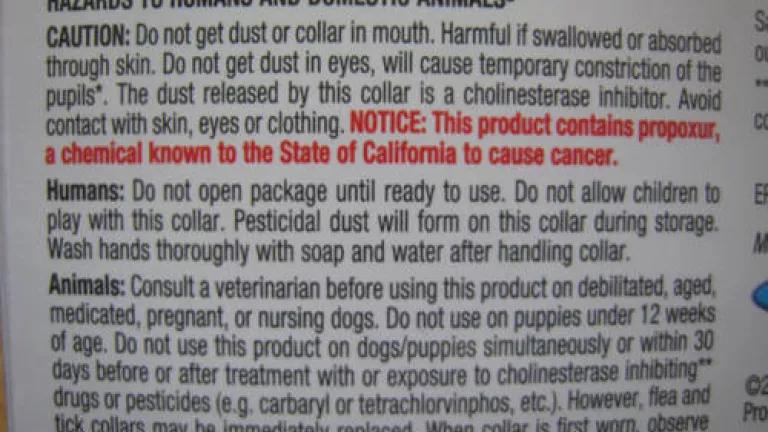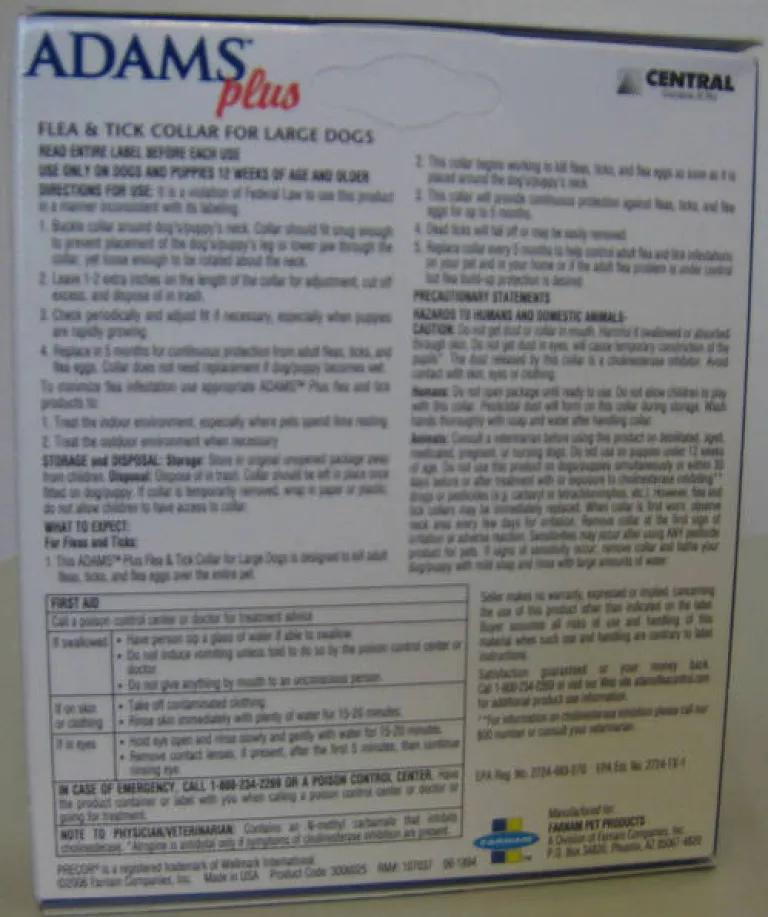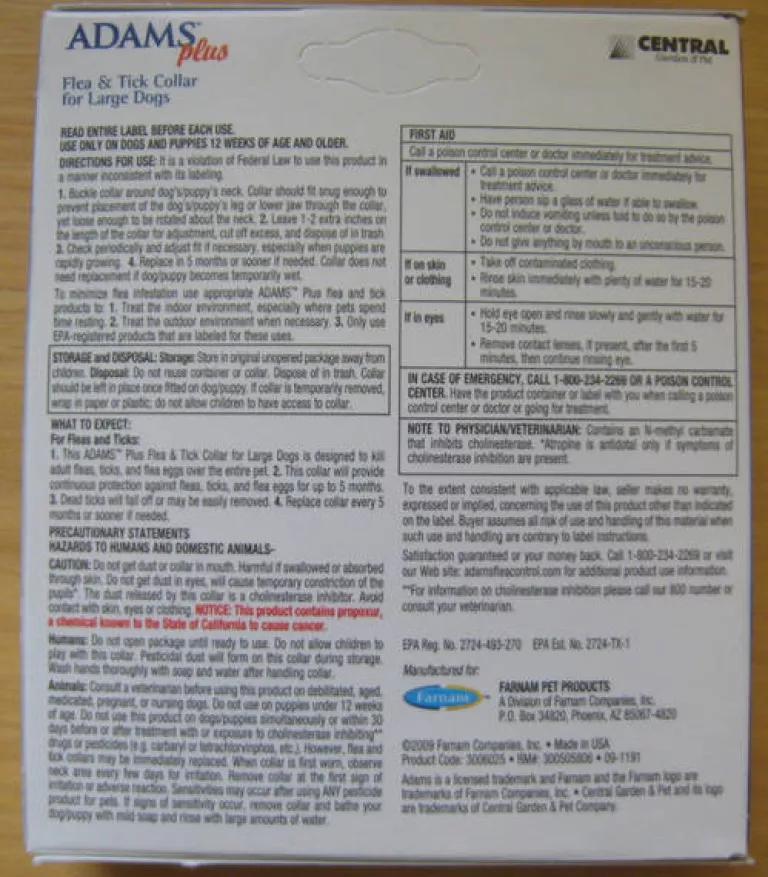NRDC Lawsuit Secures Warning Labels for Toxic Flea Collars in California, but Nationwide Ban is Sorely Needed

The good news for cats, dogs, and their human families today is that, thanks to a lawsuit filed by NRDC, toxic flea collars in California that contain the cancer-causing chemical propoxur will not be sold without warning labels.
Propoxur Health Warning
Photo: Miriam Rotkin-Ellman
Today’s news – the result of a settlement agreement in our lawsuit – is a positive step forward for protecting human and animal health. With a safety warning on the box, consumers are better able to make informed decisions and avoid using toxic pet products, like flea collars with propoxur, in their home. This is especially important for families with children that spend a lot of time with their pet. Young children are especially at risk from the chemicals in flea collars because their bodies and brains are still developing and their play activities can mean a lot of contact with a pet and ingestion of chemical residues when they frequently put their hands in their mouths.
Flea Collar Box Before and After Warning Label (see red text)


Photos: Miriam Rotkin-Ellman
The not so good news is that these toxic products are still allowed to be sold.
Over a year and half ago, I designed a study to test the residue levels on pet fur from these flea collars. We tested numerous cats and dogs, and released a report documenting high levels of chemicals, like propoxur, on the fur of pets wearing flea collars. Those residues were easily transferred onto hands or surfaces, resulting in the potential for toxic exposure to pet owners that exceeded acceptable limits, particularly for young children.
My colleague, NRDC Senior Scientist & physician Dr. Gina Solomon, also chronicled her own experience with these nasty collars. Based on our findings, last year we sued the manufacturers and major retailers that sell flea collars with propoxur for failing to comply with California’s law requiring warning labels on products with cancer-causing chemicals. We also petitioned the Environmental Protection Agency (EPA) to ban the use of these products altogether, based on the neurotoxic risks to children.
After we submitted our report and petition to EPA, the agency did a risk assessment that confirmed unacceptable levels of risk to young children from use of flea collars with propoxur. EPA found serious health risks despite major flaws in their assessment, for example:
- EPA continued to use the ridiculous assumption that child only puts their hand in their mouth once a day while playing with a pet.
- EPA ignored the potential for exposure to pesticide residue through the skin.
- EPA’s risk assessment failed to consider cancer risks.
Even while underestimating the threat for all of these reasons, they were able to confirm the serious health risks.
All this together, is ample evidence to take get these products off the shelves. We tried sending letters to PetCo and PetSmart – the two largest pet retailers in the nation – encouraging them to do the right thing and stop selling the products, but despite receiving letters from nearly 14,000 people, they refused. EPA needs to take action on its own assessment and ban this chemical from pet products. Warning labels help, but pet owners shouldn’t have read the fine print to protect their families.
Take your pet & family’s safety into your own hands: Learn more about safer methods of flea and tick control at www.greenpaws.org. While you’re there, be sure to check out our product guide, which ranks more than 125 flea & tick products, categorizing them by the level of their potential health threat.
Some Flea collars with propoxur include:
- Adam’s brand “Plus” collars
- Bio Spot brand collars
- Sentry brand “Dual Action” collars
- Sergeant’s brand collars
- Vet Kem brand “Tick Away” collars
- Zodiac


Photo: Miriam Rotkin-Ellman
